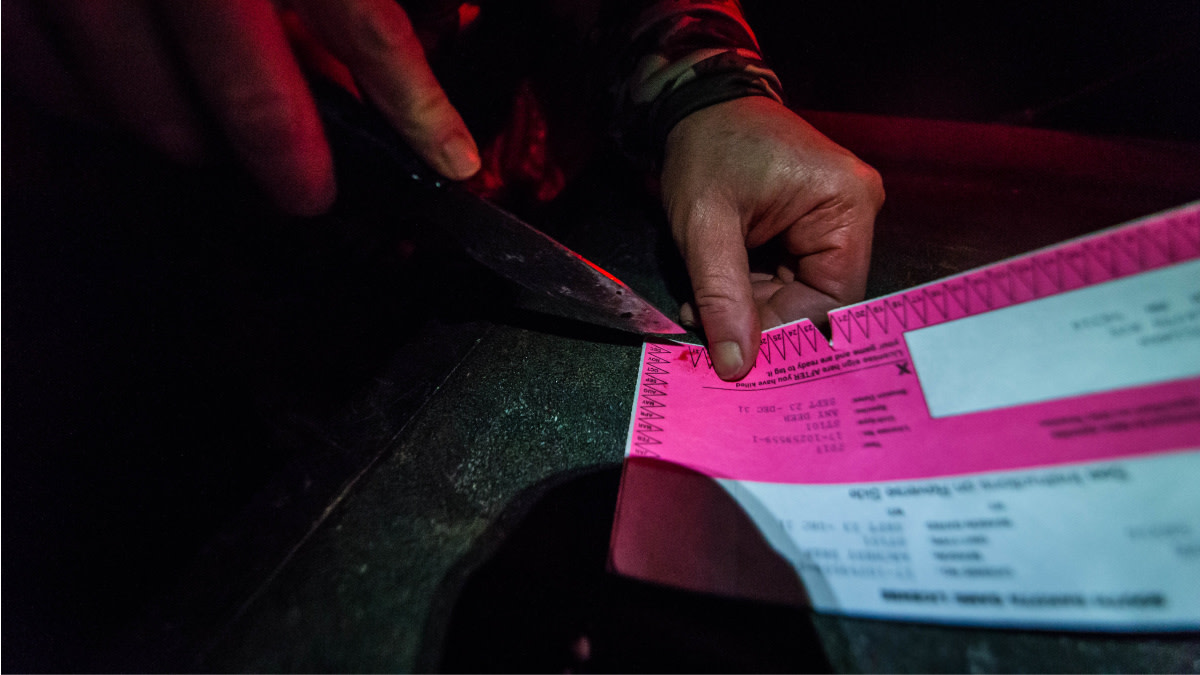
In our new series, Ask a Warden, we’ll be interviewing officers from across the country to learn about their role in protecting our game, fish, and other resources. In this edition, we asked officers from Minnesota, Arizona, and West Virginia about why reg books are so complicated.
This fall, I’ll be gun hunting deer in Montana, South Dakota, and Nebraska. In my research, I’ve learned that all three states have very different laws on hunter orange, tagging, transport, access, and more. The stacks of reg books are enough to make any hunter’s head spin. It’s made me wonder: why can’t game laws be more simple, and how do those who enforce these rules feel about the complicated, inconsistent language?
Officer Mitch Boyum | Minnesota Department of Natural Resources
“We understand the rules and regulations can be a little complicated at times, and that you do have to do your homework. It can be frustrating for people, but part of the reason why things might change or seem complex is to ensure hunting and fishing are sustainable for future generations.
“Let’s take deer hunting for example. From the biological end, biologists look at a variety of data and determine what limits should be and how long seasons should be. That dictates what the regulations are in one particular year, but part of their job is also to make sure opportunities exist down the road, too. There’s also the disease aspect, and something like chronic wasting disease changes things. It might be frustrating to hunters, but our disease folks need to look 20 or 30 years into the future. And then there’s the social aspect of it—what hunters are asking for. Everybody likes to hunt differently, and that plays a role in the regulations as well.
“In closing, I’d say anybody who is confused about regulations or has questions should call their local conservation officer. We’d rather answer their question or clarify something on the front end than have them make a mistake out in the field.”
Officer Matt Braun | Arizona Game & Fish Department
“Disregarding legalese language and the politics involved in the creation of laws, I believe most state conservation agencies want to maximize opportunity while managing ever-changing wildlife populations. Think of game and fish regulations as a local scalpel, surgically solving a local problem. Other laws we are more familiar with, like traffic and criminal law, are a statewide hammer, and pretty much the same everywhere. For example, Arizona Unit 34A has a thriving whitetail population, but a struggling mule deer population. These mule deer were hunted really hard during the archery season in December by hunters who just wanted to fill their calendar year tag. Now, this isn’t an issue statewide and is only affecting one species of deer. As a result, a very specific rule was put into place so that 34A is the only unit in the state where one can only hunt whitetails during the December over-the-counter archery hunt. In time, we could relax that restriction if the mule deer population improves. This complicates the regulations ever more because of ever changing wildlife populations.
“I do think the regulations are over-complicated, mostly because they are not written in an understandable, intuitive way. You almost have to learn a new language (legalese) to truly understand the laws and rules. There is no way around this, unfortunately, but I know some states have sections in the regulations where they spell things out in a way people without law degrees can understand. We did this with our dove regulations a couple of years ago, but you still have to study the regulations if you truly want to understand them.”
Officer Chris Fitzwater | West Virginia Division of Natural Resources
“Regulation books and manuals can be overwhelming due to the vast information regarding hunting laws. I’ve had the opportunity to hunt and fish in multiple states and have used several different hunting and fishing regulation brochures myself. Wardens want to make sure the regs are read carefully and understood thoroughly so no mistakes are made. Unfortunately, outdoorsmen can make a simple mistake that results in a violation.
“When I am asked to explain a regulation, we open the reg book together and I attempt to explain the law in the most basic way. As I tell everyone, the best person to ask about a regulation question is their local warden.”
Feature image via Captured Creative.



